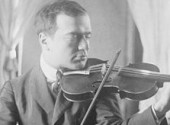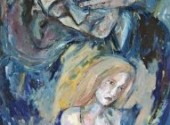 A new documentary, “Orchestra of Exiles,” traces the real-life tale of Polish-born violinist Bronislaw Huberman (1882-1947), who saved hundreds from the Holocaust while assembling what later became the Israel Philharmonic Orchestra. The Times of Israel has the details:
A new documentary, “Orchestra of Exiles,” traces the real-life tale of Polish-born violinist Bronislaw Huberman (1882-1947), who saved hundreds from the Holocaust while assembling what later became the Israel Philharmonic Orchestra. The Times of Israel has the details:
Continue Reading
Subscribe via Email
- Subscribe to the Pro Musica Hebraica Blog by email. Enter your email address to be notified of new posts. You may unsubscribe any time.
The Right Representation of the Holocaust in Art
-
Recent Posts
- Saved: A trove of Jewish music that defied Nazis
- The ARC Ensemble performs the suppressed works of Ukrainian master composer
- The music of the historic Zimro Ensemble at Pittsburgh Jewish Music Festival
- Yiddish Classical Music in America
- Review: WEINBERG Symphonies – Nos 2 & 21,‘Kaddish’ (Gražinytė-Tyla)
 Mark Glanville and Alexander Knapp will
Mark Glanville and Alexander Knapp will